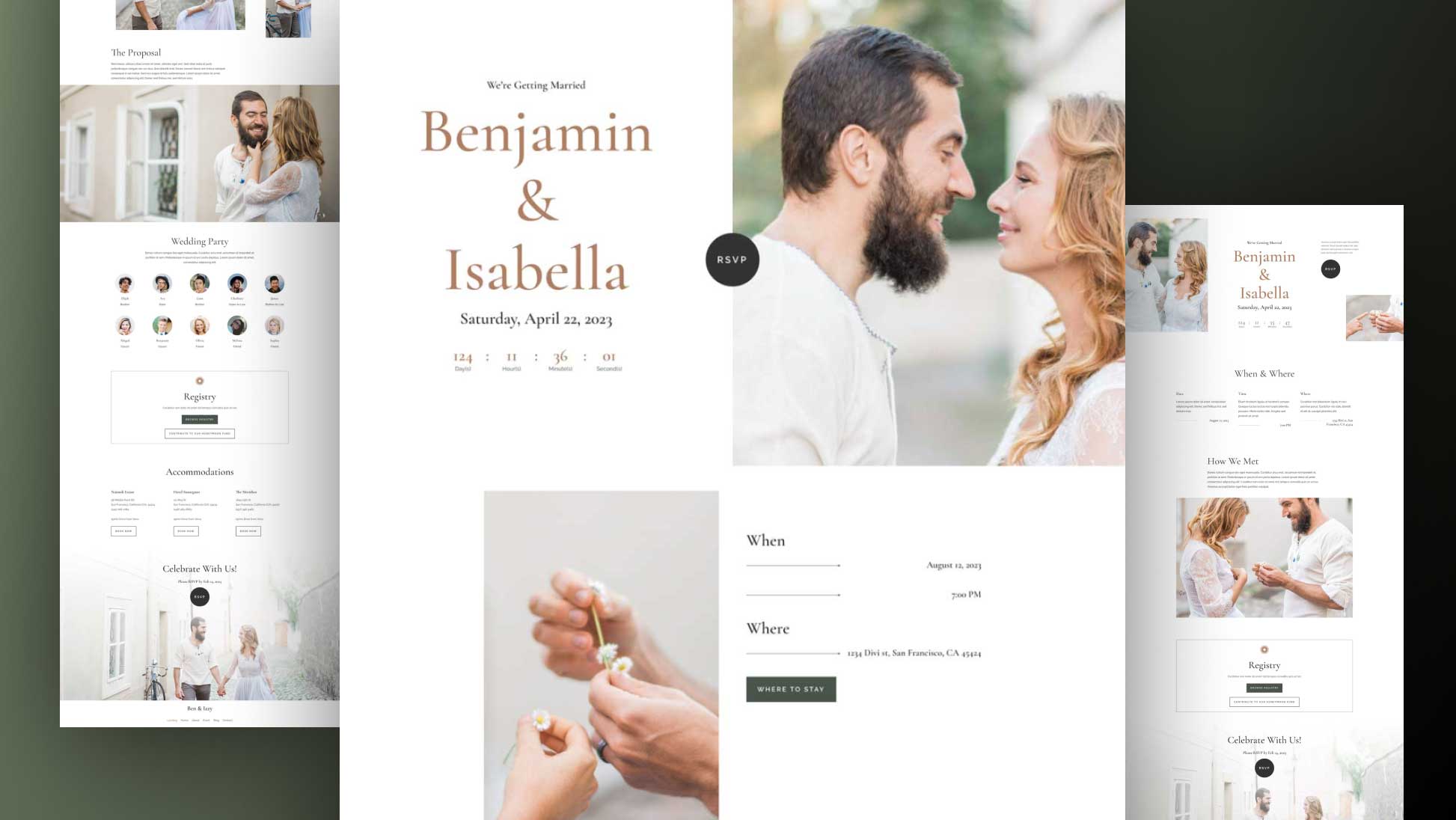As a wise man once wrote – making your way in the world today takes everything you’ve got.
Our industry is incredibly competitive and cut-throat when it comes to prices. Whether you’re looking to make it on your own, or leading an agency, you’ll need to master a broad range of skills as a WordPress developer and one of the most crucial is being able to negotiate.
Sell yourself short and you open up the door to clients from hell and a demoralizing professional existence. Crack the negotiating code and your future will start to take on a distinctly rosy hue.
In this article we’ll break down the basics of how to negotiate effectively with seven simple tips you can start using to put more money in your pocket today.
Before we get down to brass tacks though, let’s take a moment to discuss some background.
- 1 Understanding the Landscape You Operate in
- 2 1. Find out the Client Budget
- 3 2. Learn the Art of the Counter-Offer
- 4 3. Remember That It’s All about the Upsell
- 5 4. Extraordinary Requests Demand Extraordinary Rates
- 6 5. Don’t Crack under Pressure
- 7 6. Realize That Negotiations Don’t Just Happen Once
- 8 7. Get Comfortable with Rejection and Walking Away
- 9 Summary
Understanding the Landscape You Operate in
According to data from Payscale, the average WordPress developer in the US should be expecting to earn approximately $49,000 per year. This works out to around $19 per hour for a 50-hour workweek.
That’s all fine and dandy but some of you may be thinking: I’m not sure where those guys get their figures from, but I’m making nowhere near that.
Even for full-time WordPress developers, those kind of numbers can seem like a pipe dream if you’re having problems finding customers willing to pay competitive rates.
The sad fact is that many developers — and particularly freelancers — will often settle for less remuneration than they should be getting. There’s a staggering amount of competition out there and a lot of people with equal talent who may be willing to accept less due to lower costs of living wherever they happen to be based.
So, if there’s that much global competition willing to undercut me, how do I get clients to agree to my rates?
First of all, forget about competition who are playing by different rules. In this case that means those who can afford to charge much less than you because of their circumstances and still come out ahead. This is a race to the bottom you cannot win – choose not to run it.
Second, determine your baseline. What’s the minimum you need to earn either daily or per hour in order to get to your desired salary? Don’t settle for pennies, you’re a professional and you should be aiming to continually improve your circumstances.
Do you have a number yet? Good. The third step is to roll up your sleeves and start working towards that number – you didn’t think just wanting it was enough, did you?
This third step is where your ability to negotiate will come in. Sadly, years of experience and a great portfolio don’t magically translate into higher rates. If you want something, you’ve got to be ready to ask for it and persuade others of the merits of your case.
A lot of developers will shy away from negotiations because they’re afraid of coming across as greedy and scaring clients away. However, there’s really no reason to approach this scenario with trepidation; we’ll cover everything you need to know to become a proficient negotiator below.
Let’s get started!
1. Find out the Client Budget
For this step you will need a potential customer and a little bit of tact. You only have the former? We can work with that, the latter can be mastered with some practice. As soon as you understand what your client needs, you should politely inquire as to what their budget for the project is.
Conventional wisdom says that, in a negotiation, the party who makes the first move will often have an advantage as the conversation moves forward on their terms from that moment on. However, as a developer, you will often find that clients can be skittish and easily spooked. It’s often wise to assess whether they can foot your bill before committing too much of yourself to the relationship.
Some clients will prefer to simply receive a quote from you. Be careful here – they may have allotted a cool $10,000 towards the remodelling of their site but you might be willing to do it for $3,000. So they’ll sit patiently and wait for you to talk yourself out of that extra cash.
If you’re making the first move, you should always come out strong. You’ve already got your baseline figured out remember, so go higher — within reason — than what you’d be willing to settle for. Also be sure to leave yourself some wiggle room in case the client attempts to nudge that initial number downwards.
2. Learn the Art of the Counter-Offer
Famous playwright, philosopher and shed-enthusiast George Bernard Shaw summed this up best many years ago:
“The reasonable man adapts himself to the world, the unreasonable one persists in trying to adapt the world to himself. Therefore, all progress depends on the unreasonable man.”
Now, we’re not saying you should reply to every single email asking for a quote with a confident one million dollars, please and tell yourself you’re doing it in the name of progress. Just keep in mind that, during negotiations, it pays to stick your guns.
Clients will sometimes lowball you just to see if they can land a bargain and, when faced with your counter-offer, they’ll often keep repeating that tactic hoping to wear you down. It’s easy to become frustrated during these sort of exchanges but remember: if they’re still replying, it’s very likely their ideal number is somewhere around your ballpark.
The art of the counter-offer extends beyond simple pricing discussions though. If a project falls slightly below your ideal rates, you could mention to the client that it would be possible to take on if the scope was slightly reduced. Think of these removed features as extras you can use later to entice the client to hire you for further work.
You can even ask for more time than you’d normally take for a project if their budget doesn’t match yours but the work doesn’t seem like it’ll be too taxing. That way you can remain on the hunt for higher paying opportunities while still retaining more modest clients. They might be so happy at having saved some money that they’ll hit you up again when there’s more work to be done.
Learn to turn low bids to your advantage and you won’t ever leave the negotiating table telling yourself I’ve just made a huge mistake after signing a contract.
3. Remember That It’s All about the Upsell
Sometimes you just know when you’ve got a client on the hook and it’s a pretty great feeling. In those cases, your first instinct will likely be to get that contract signed as fast as possible so you can stop emailing back and forth and actually get down to work.
Your first instinct could be costing you some lucrative opportunities however. Sure, the client may be happy with a simple, elegant WordPress website to display their business information, but have they considered how integrating e-commerce could boost sales? What about using email lists to capture more leads?
As both a developer and a salesperson, you should always inform your clients of the full array of options available to them. You’re the expert and it’s your duty to share this information.
Additional features can easily translate into higher rates which are justified considered their added value to the final projects. Just don’t try to pass off standard services as premium features.
4. Extraordinary Requests Demand Extraordinary Rates
It’s important to remember that people unfamiliar with the vagaries of web development will often ask for tasks that no sane professional would want to tackle.
“Well, it’s a pretty simple job. Two or three pages with our contact information and a small photo gallery. I’ve heard bad stuff about those pre-made content management systems though. Couldn’t you like, build a brand new one for us?”
That’s not a wildly unreasonable request on first glance. Sure, it’ll mean a lot more work than necessary but hey, the customer is always right…right?
The correct response to this kind of scenario would be something along the lines of:
“I understand your concerns and can definitely work with you on this. I’ve got to let you know however that since this is not a service we normally provide — most of our customers are pretty happy with their standard CMS — we’re going to need to increase our regular rates for this project.
We could definitely go a bit lower if you’d be willing to consider trying out WordPress though. Its theme system offers a lot of flexibility and there are several built-in pieces of functionality in the software that would be perfect for your requirements.”
Here you’re remaining open to their initial request, establishing in clear terms that your rates are going to be higher than usual and proposing a counter-offer that would suit both of you perfectly should they choose to go down that route.
5. Don’t Crack under Pressure
One of the most common negotiation techniques potential customers will throw at you is the threat to simply walk away from the table.
“Your prices sound a bit excessive. I bet I can find someone who’ll be happy to do it for half that amount.”
Crude, yet effective. A developer hurting for work may consider swallowing their pride during such a situation and accepting a low bid rather than none at all.
This takes us back to a point at the beginning of the article. You’ve got to understand the value of your work, both from your own perspective and that of the client. Stick to your guns, be professional, and let whoever is on the other end of that email know you’re not going to sell yourself short.
An appropriate response would look something like this:
“While I understand that your budget may not fit with my suggested prices, I’m afraid that for the work we’ve discussed that would be my best offer. If you change your mind in the future, please do remember I’m already booked for the upcoming weeks, so I’d need to know soon.”
The most important thing to remember when being pressured is to maintain your calm and not let it affect your decision making.
In this scenario, you’ve avoided burning any bridges and created an impression of scarcity for your services, therefore increasing their value in the mind of the potential customer.
6. Realize That Negotiations Don’t Just Happen Once
When you’ve been working for the same person for a while, you both tend to fall into a pattern. They’ll come to expect a certain level of quality from you at certain prices and most likely won’t be too eager to raise them of their own initiative. That’s just simple business common sense.
However, if you set high standards for your work and devote the time to improving your skillset — you’re already reading this blog, so you’re on the right track — your rates should rise accordingly over time. An established working relationship shouldn’t stop you from renegotiating your rates or wages on a regular basis.
If you’re confident in the value of your work, think of this as just reward for both your efforts to date and your commitment to constantly raising your game. If your client or employer doesn’t see eye-to-eye with you on this topic, there’ll surely be other opportunities waiting for you out in the wider world.
7. Get Comfortable with Rejection and Walking Away
Sadly, not all negotiations will end with you swimming in piles of cash. Experience has probably already taught you this.
Not every customer will negotiate in good faith with you or respond kindly when faced with counter-offers or quotes they consider too high.
Some clients will ask for an endless stream of add-ons and alterations for their projects, refuse to pay agreed rates post-completion and indulge in various other hijinks that will make you want to decamp to a remote tropical island just so you don’t have to deal with people ever again.
Usually these clients arrive waving gigantic, neon-red warning flags. If you’re a developer, you need to remember you can always walk away in advance when someone seems too troublesome to work with. Your nerves will thank you for taking this approach in the long run, even if your wallet grumbles in the here and now.
Over time, you’ll also find yourself in many negotiations that simply don’t pan out for entirely natural reasons. That’s just life. Stay friendly and professional throughout all your dealings with others and you leave the door open for future opportunities.
Summary
We hope that after reading this article, you’ll be walking away with some practical tools you can use to swing negotiations in your favor. If you leave with nothing else, remember this – you actually deserve to be compensated fairly for your work. Don’t sell yourself short.
Here’s a recap of our seven tips:
- Find out the client budget.
- Learn the art of the counter-offer.
- Remember that it’s all about the upsell.
- Extraordinary requests demand extraordinary rates.
- Don’t crack under pressure.
- Realize that negotiations don’t just happen once.
- Get comfortable with rejection and walking away.
As a developer you’re used to having to master many skills. Very few of them will serve you as well as the ability to sit down and negotiate a deal to everyone’s satisfaction.
Got any negotiating tips you want to share? Get in touch via the comments and let us know!
Article thumbnail image by Alex Oakenman / shutterstock.com.









“Some clients will ask for an endless stream of add-ons and alterations for their projects, refuse to pay agreed rates post-completion and indulge in various other hijinks that will make you want to decamp to a remote tropical island just so you don’t have to deal with people ever again.”
Made me giggle and facepalm at the same time. I want to meet a freelancer / agency established longer than 1y who didn’t experienced it.
I’m getting clear on this upfront now.
Wow i like the advice and tips. Tjis is great for beginner entrepreneurs and those just interested in entrepreneurship in general. I like this.
Good post! I would like to add a few mindsets I like to prepare myself with prior to sitting down with a potential client.
1- he needs my service, the same as his customers need his service.
2- I wont allow myself to become desperate. sorry to say but I am far more willing to walk away than become miserable and underpaid. Make no mistake, once you give price breaks it is usually taken advantage of.
3- I use my knowledge to educate them on any questions or misconceptions they my have. This is the best way to let them know that they need your services.
Anyway, Thought I’d chime in on this. 🙂
I did once have a guy that wanted to pay me almost nothing, using the old argument that I was to high priced. He told me something that made me walk away from the job. He told that we we’re friends (he was a friend of a friend), but business was business. I don’t separate friendships and business that way. I walked away. I knew I would be miserable if I stayed. Just sayin’ 🙂
Thanks for the article – this is a constant trial and error for us – love hearing how others handle effective pricing.
Thanks Tom! A great post as usual! Can you tell us more about the “neon-red warning flags”? I tend to miss those sometimes! Maybe longer on another article?
Great post!!!! I’m a wordpress developer and I really need to learn the art of negotiation….
Brilliant! Good info for a new freelancer like me!
Thanks!
Erick P.
You know, I feel costs are effected often by a lack of knowledge on the part of the consumer. I counter this with information on what WordPress does naturally and what is out of it’s nature, so it would be expensive to do.
Most of the time my clients see the difference and find a more inexpensive (and often better) way to accomplish their goals.
That’s WordPress to me these days.
Hi Tom, does Elegant Themes offer a list of word press developers that they recommend? Thanks!
There are some really active Facebook groups you could check out: Divi Help & Share; and Divi Theme Users. There are others too.
Excellent posting, Tom.
I am of the mind that I need to be paid enough for my work that it’s worth while for me to take time away from everything else I do to tackle the client’s project.
If a client were to try to lowball me, I take your same approach, telling them something like, “I know many people out there beat my prices hands down. But you will have a difficult time finding anyone producing the quality work I do for the price I charge. Please remember if you go with a bargain basement bidder, you get what you pay for, and it usually costs my client about three times as much for me to clean up someone else’s mess as it does for me to do it right in the first place.”
I believe it is also essential – to our own integrity if nothing else – NOT to overcharge for a website. Just because a client has a $10,000 website budget does not mean I need to charge them $9,600 for a site I can have done in 20 hours work. That’s downright unethical, in my view.
Instead, I will present the client with options, such as “I can do your basic site for about $2200 to $2500. If the basic site doesn’t include some things you’d like, then we can add AAA for about $#### more, or BBB for $#### additional. We can talk about this as you get the feeling for what you really need on the site.”
Finally, while I WILL give a potential client a fixed-price quote if they insist, I always tell them that my preferred method of operation is on an hourly basis, because this gives both them and me tremendous flexibility. It is ALWAYS cheaper for the client this way (you always have to build “what ifs” into a contract), they can make all the in-development changes they want, and there will never be any of those pesky contract renegotiations and addendums, plus there will never be any of those inevitable “discussions” about what is included in the contract and what isn’t. Bottom line, they get charged only for the work I actually do, and not a penny more; and I don’t have to worry about suddenly being asked to do twice the work for the same amount of money.
In my decade of developing websites, I’ve only had three clients insist on a fixed-price contract. All of the others see the benefits of hourly work. On those three fixed-price contracts, I wound up on two of them with several hundred extra dollars in my pocket, and felt guilty about that (a little). On the other one, I probably put in about 5 hours more work than if it were that amount received at an hourly rate. That didn’t bother me.
Bottom line here, is I agree with you that a developer’s most potent tool is being willing to walk away.
As a web developer for over 21 years, and the owner of the oldest web design company in the 4th largest city in the US, I learned early on that if you attempt to build your business by competing by hourly price such as those minimum rates listed above or rates from overseas, you should stop now and go work for someone else.
This approach is a losing business model. Never qualify your business to a client by hourly pricing. If you do this will forever be mired in the under $20/hr. group of designers. Potential clients looking for the lowest hourly priced projects are never worth having as a client….EVER!
By allowing others to define your business as one that works for minimum hourly wages, you lose any leverage to build a company with reputation for quality or the ability to build a sustainable brand. You will always be dealing with one-time low-end clients. This is a business model that has failed more times than an Obama foreign policy decision, and that is hard to beat.
Sell your knowledge and experience, build quality business relationships and never sell to those awarding projects based solely on the lowest hourly rate. If you do, you will just be another failed business statistic.
Just my 2 sense….
It’s hard to take anyone seriously who can’t restrain himself from dragging a tiresome political opinion into the comment space of a blog and a post that have absolutely nothing to do with politics, except here the fine art of negotiation. Wonderful, positive article, inane negative comment.
Hi Gleen, I am working per hour, and reading your comment I must say you are right :)) My qouestion is when you are selling WordPress development and design, and when you are telling client specific price for specific work
which for example 5 or 6 benefits you tell potential client why it should be taken at that price , but of course that the client understands?
Thanks!
Thanks for posting this! I’m in the beginning process of scaling up my work (started as a side-hobby making some extra cash, but aspiring to go full time) and I had no idea how to chat with clients about my rates…or even what the average income was for someone doing this full time. Very encouraging post overall, especially about the one where you mention still accepting a project with a reduced scope. I never thought of that!
Great post! My question is:
When you say “While I understand that your budget may not fit with my suggested prices, I’m afraid that for the work we’ve discussed that would be my best offer. If you change your mind in the future, please do remember I’m already booked for the upcoming weeks, so I’d need to know soon.”
That also means that client didn’t understand what are you offering, example, WordPress site with unique design, gallery, responsive, contact form is 1500$ (example), in client language, what is he paying in that price, how can we be good seller so client can understand us?